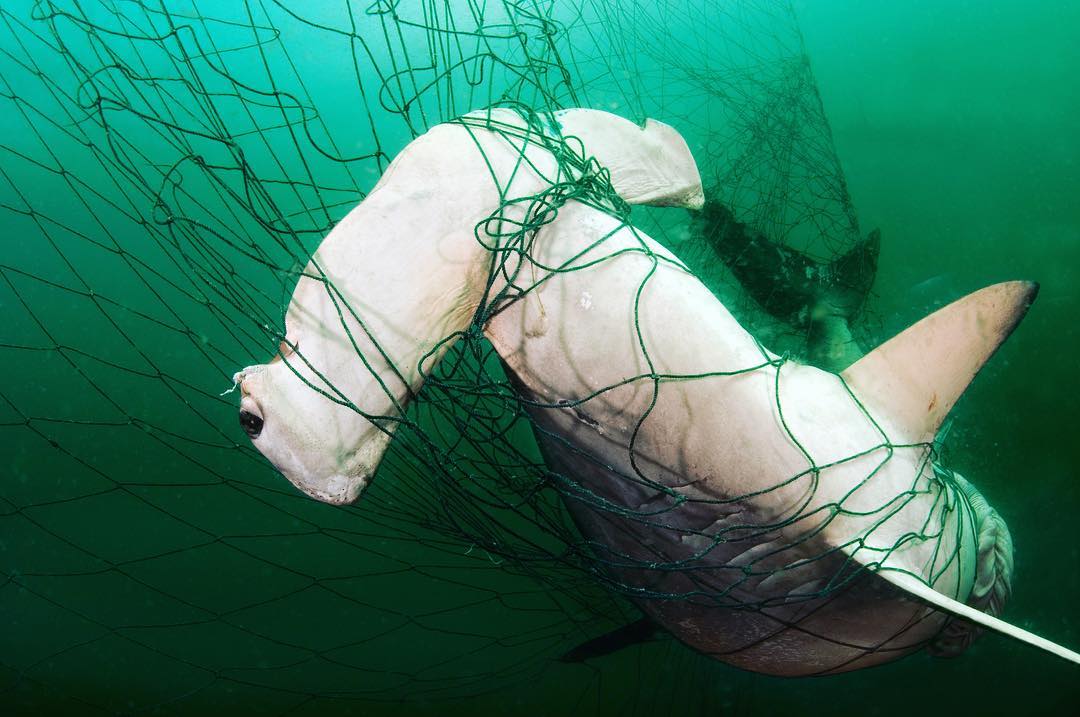Nowadays, sharks tend to get pretty bad press in the media; they are portrayed as man-eaters and a threat to humans. But there are over 500 species of shark in the world, 97% of which pose no danger to humans at all. These predators survive in the oceans at the top of the food chain, with no real competition aside from the odd killer whale or giant squid, however their main threat survives on land: man. Sharks are reported to kill between 5 and 12 humans each year, whereas humans kill 100 million sharks each year (that’s 11,417 per hour!), which is usually used to fuel the barbaric shark fin industry. This demand for shark-fin soup is said to be of a “cultural importance”, yet there are no known health or medicinal benefits from human consumption. What scientists are starting to observe is that due to this over-fishing, 20% of the shark species are now on the brink of extinction. Just to put this into perspective – sharks have been on this planet for at least 400 million years, outlasting the dinosaurs and having survived 5 planetary mass-extinctions. Now it seems that their existence balances in the palms of our hands.
So what? Why should we care?
We should care because many of the shark species are known as “keystone species” – what this basically means is that sharks have a disproportionate effect on the ocean’s food web, which has taken millions of years to establish. The importance of sharks is due to their dominance as predators, although they may seem like greedy carnivores, they actually prevent other marine species from having a detrimental effect on the ocean ecosystem. They also feed on the weak and older fish individuals which ‘trims’ down the population, preventing the spread of disease in shoals and ensuring that a healthy population is maintained.
Without these sharks what can be expected?
One of the initial changes to the ecosystem will be the emergence of other dominant species, such as tuna and octopi, these new apex predators are so highly-adapted that without any natural predators their populations will explode. This will increase the demand for other marine life which resides lower in the food chain. One example of this is as follows:
- Sharks become extinct
- No natural predators for tuna species
- Tuna populations rapidly increase
- Tuna’s prey (which consume coral reef algae) are consumed in huge numbers to feed the growing population
- No fish to eat the algae
- Algae bloom on the coral reefs
- Corals die
- Loss of habitat for the remaining coral ecosystem
That might seem far-fetched but this sequence of events has happened with other species. Furthermore, sharks exhibit an intimidation factor upon the food chain, by being present in an area, their prey (such as sea turtles for tiger sharks) will feed in a broader area and will therefore be prevented from overgrazing on sea grass beds.
So, what have we learnt?
When sharks are removed from an area, the ecosystem loses its balance. Various researchers have demonstrated how, without sharks, there may be a detrimental effect on our commercial fisheries, due to the loss of various important fish and shellfish populations. If the rate that people are fishing for sharks continues to rise, there may not be any left in our oceans within the next few decades. The film Jaws is scary, but a future without any sharks in our oceans is even scarier.
James Deed
(Image courtesy of National Geographic)

